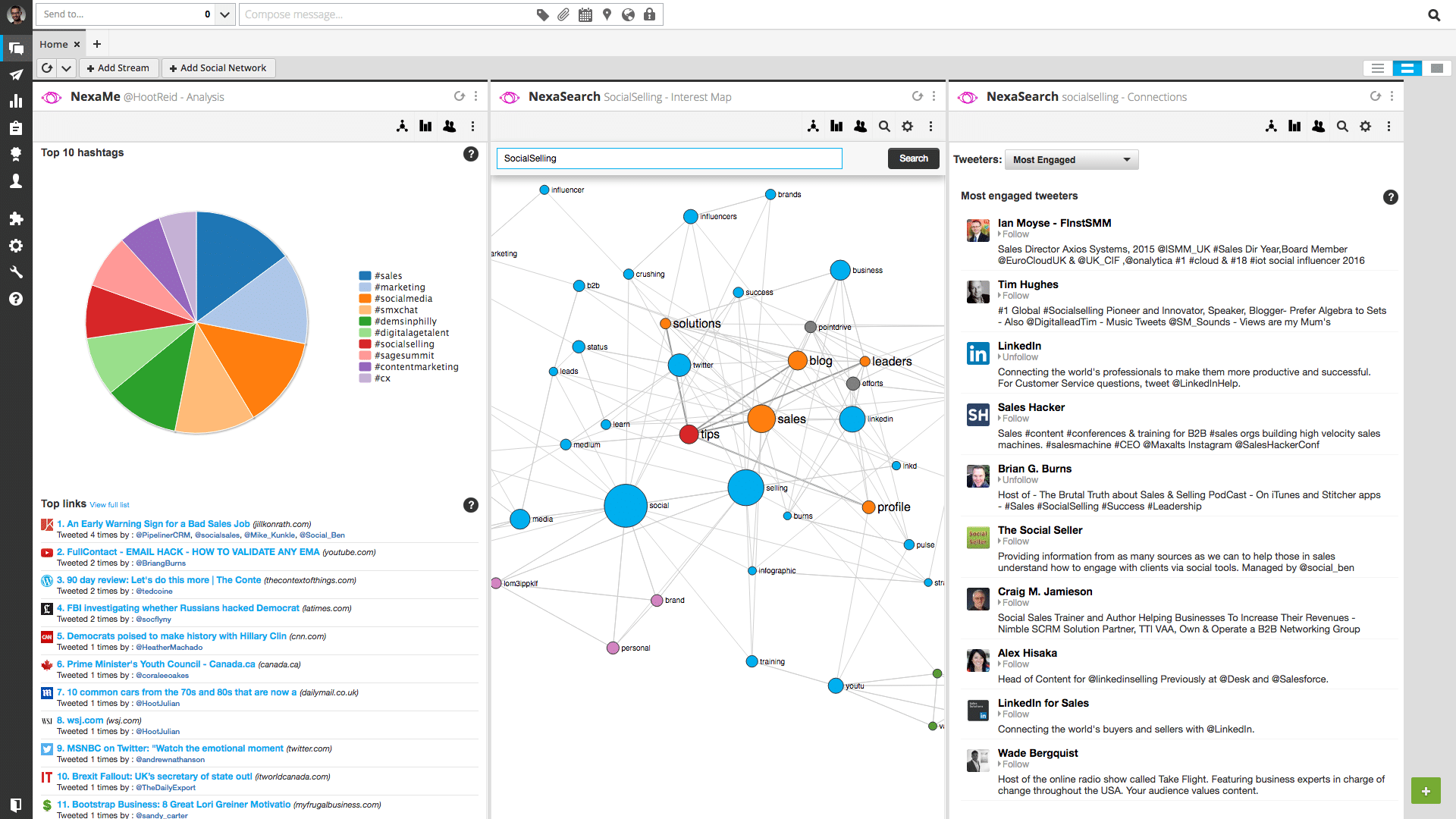
Financial advisors help clients manage their finances. Financial advisors can help people plan for retirement and save money for college. They can help people pay down debts and manage their credit. People will have less money for spending and more money for retirement. An advisor in financial planning can help individuals create and manage a budget to reach specific goals.
The questionnaire for a financial advisor includes an investment component.
A questionnaire designed for financial advisors asks clients about risk tolerance and investment preferences. These questions provide an overview of a client’s financial situation. These questions can include questions about how long the client plans to work and what savings they have for retirement. They may also inquire about their pensions and long-term financial obligations. This part of the financial advisor's questionnaire may be subjective. However, the questions allow the advisor to allocate the correct assets.
When recommending investment options, financial advisors must act in the best interests of their clients. This means they must use the questionnaire to determine which investment options best fit a client's needs and risk tolerance. Portfolios that are too high or too risky for investors can be created if the answers are not correct. This can have a negative impact on returns, meaning a client will lose out on higher returns compared to someone with a higher risk tolerance.
Allocation of assets
Financial advisors' role is to assist individuals in balancing their assets. The financial advisor will recommend an asset allocation that is appropriate for your risk tolerance. Investing is a risky venture, so it is vital to have a strategy in place for managing the risk. A financial advisor is able to help you select the most appropriate asset allocation according to your time horizon as well as your risk tolerance.

Asset allocation is not an exact science and every advisor uses a unique approach. But there are key concepts you should understand and be able to apply. One example is that clients with a longer-term time horizon may have an increased risk tolerance and require more stocks or bonds in their retirement funds.
Tax planning
A financial advisor will help you maximize your tax savings through investments. Advisors can help you make informed investment decisions and provide advice about investments. Tax planning can be a crucial part of financial advisory and could help you save thousands every year. To help clients better, financial planners may also use tax planning software.
Tax-experienced financial advisors are more likely than others to help you reduce taxes. They are also likely to focus on maximizing your assets rather than minimizing them. They might also offer a compensation system that favors client growth.
Communicate with a financial adviser
Communication is the first step to building a relationship between you and your financial advisor. It is imperative that you communicate honestly and don't hold back during meetings with your advisor. Your financial advisor should know what your financial goals are so that he or she can help develop strategies to meet them. It is important that you listen to your financial advisor when they explain something to you.
Communicating with your advisor via social media is another great option. Recent research shows that over half of investors who invest more than $25 million use Facebook to communicate their concerns with their advisors. Another 35% use Twitter in order to stay in touch.

Financial advisors get paid
One of the most important decisions you will make when becoming a financial adviser is how you're going be compensated. A percentage may be offered as a bonus or commission, while others might offer a flat fee. You can earn as much or less depending on the type of compensation.
Some advisors make money through commissions and by selling products. Some charge an hourly for meetings while others charge a monthly retainer to continue services. Do not hesitate to ask your advisor which option they prefer.
FAQ
What contracts are available for consultants?
Most consultants sign standard employment agreements when hired. These agreements detail the length of the consultant's contract with the client, the amount he/she is paid, and other important details.
Contracts also specify which areas of expertise the consultant will focus on and how the consultant will be compensated. For example, the agreement may say that the consultant will provide training sessions, workshops, webinars, seminars, etc.
Sometimes, the consultant agrees to do certain tasks within a given time frame.
Consultants often sign independent contractor contracts in addition to their standard employment agreements. These agreements allow the consultant to work independently but still receive payment for his/her efforts.
Can you run a business consulting from your home?
Absolutely! This is something that many consultants do already.
The majority of freelancers work remotely with tools like Skype. Many freelancers set up their own office space to avoid missing out on company perks.
Some freelancers prefer to work in cafes or libraries instead of in a traditional office environment.
Others prefer to work from home as they feel more at home with their families.
There are pros and cons to working remotely. If you love your job, working from home is definitely something worth looking at.
How long does it usually take to become an expert consultant?
It depends on the industry and your background. Most people start out with a few months before they find work.
Some consultants, however, spend many years perfecting their skills before they find work.
What industries use consultants
There are many types. Some consultants are focused on a specific type of business, others may specialize in multiple areas.
Some consultants work only for private companies, while others represent large corporations.
And some consultants work internationally, helping companies all over the world.
What is a consultant?
Consultants are people who provide services to others. Consultant is not just a job title. It's a position where you help people achieve their goals. This is done by helping others understand their options and making the right decisions.
Consultants are experts at finding solutions to problems and challenges that arise when working on projects. Consultants can also offer advice and guidance regarding how to implement these solutions.
Consultants should be able and willing to answer any questions regarding business, technology or finance, leadership, strategy, customer service, legal, management, leadership, management, law, management, law, procurement, legal, marketing, human resources, etc.
What happens after the consultant has finished the job?
After the consultant has completed the work, they will submit a final document detailing the results. This report details the project timeline, deliverables, as well any other pertinent information.
The report will be reviewed and you can decide if the consultant met all your expectations. If not, you can either request changes or terminate the contract.
Why should consultants be hired?
There are many reasons to hire consultants.
-
Your organization may have a specific project or problem that needs solving
-
You want to improve or learn new skills.
-
You want to work with an expert in a particular field
-
You have no other choice but to do the job.
-
It's overwhelming to see all the information, and you don't know how to get started.
-
You cannot afford to pay someone fulltime
The best way to find a good consultant is through word of mouth. Ask around to see if you know any good consultants. Ask someone you know who is a consultant for his/her recommendations.
If you're interested in using online directories, such as LinkedIn, you can use the "Search People” feature to find consultants near your location.
Statistics
- Over 50% of consultants get their first consulting client through a referral from their network. (consultingsuccess.com)
- On average, your program increases the sales team's performance by 33%. (consultingsuccess.com)
- "From there, I told them my rates were going up 25%, this is the new hourly rate, and every single one of them said 'done, fine.' (nerdwallet.com)
- According to statistics from the ONS, the UK has around 300,000 consultants, of which around 63,000 professionals work as management consultants. (consultancy.uk)
- 67% of consultants start their consulting businesses after quitting their jobs, while 33% start while they're still at their jobs. (consultingsuccess.com)
External Links
How To
How can I find a good consultant for my business?
Understanding your needs is the first step to finding the right consultant. Are you looking for them to improve the performance of your website? Do you want them to optimize your site to rank higher in search engines? Maybe you are looking for someone to point out any problems with your current web host. You need to know what kind of services you want, and then you can begin looking at other companies. Many consultants claim to be able to provide these services. However, only a handful of them actually deliver on their promises. How do I choose one? Here are some things that you need to keep in mind when selecting a consultant.
-
Ask for referrals. This is probably the best way to choose a consultant. You shouldn't hire someone you haven’t met before as they will probably charge you too much. You don't want to work alongside someone whose reputation hasn't been established. If you have the good fortune to get referrals from trusted people, great! You can check online reviews even if they don't refer you. Check for testimonials or case studies that show how clients have used your services.
-
Ask around. Many people are not aware of the benefits of hiring a consultant. They think that since they're currently doing fine, they don't need to make changes. This is often false. Even if you are seeing great results, it is likely that you have not been keeping up to date with technology and trends. And if you're relying on outdated methods, you'll miss out on opportunities to grow your business. It's always worth asking for referrals to find good consultants.
-
Make sure to verify their qualifications. You need to verify their qualifications when you are searching for a consultant. Check that they are qualified to complete the tasks and have enough expertise in the chosen area.
-
Find out what type of projects they are skilled in. It is a common misconception that everyone can manage everything. Some areas require specific types of training or education. For example, if you need someone to build a WordPress theme, you won't want to hire a developer who specializes in Drupal. It is the same for programming languages, graphic design, and so on. Be sure to ask what kinds of projects they typically work on.
-
Know what they charge. As we said, you don't want to pay too much for a consultant. You also don't want too much. Consultants come in many sizes and shapes. Some bill hourly, while others are charged per project. You will save money if you know exactly what you're going to pay upfront.
-
Learn what they offer. Are they providing free consultations? Are they willing to give advice about how to set up your own system or provide other assistance? Is there a guarantee that your site will rank higher after working with them? If you don't like what you hear during your consultation, you should feel confident knowing you can cancel without penalty.
-
Finally, find out if they offer discounts for multiple months or years. Many consultants offer discounted pricing over extended periods. While you don't necessarily need to commit for a whole year, you can still take advantage of any deals that they offer.